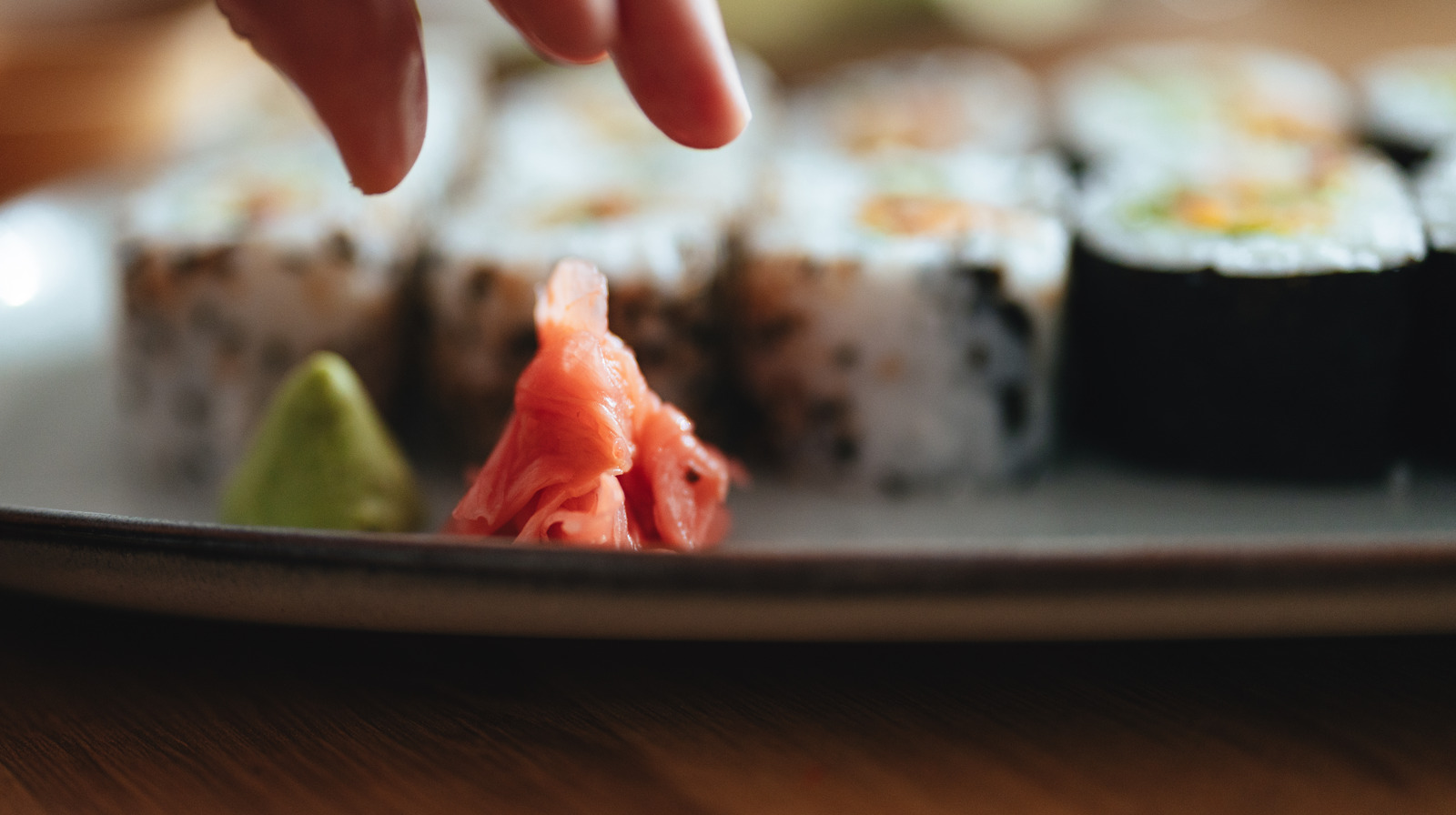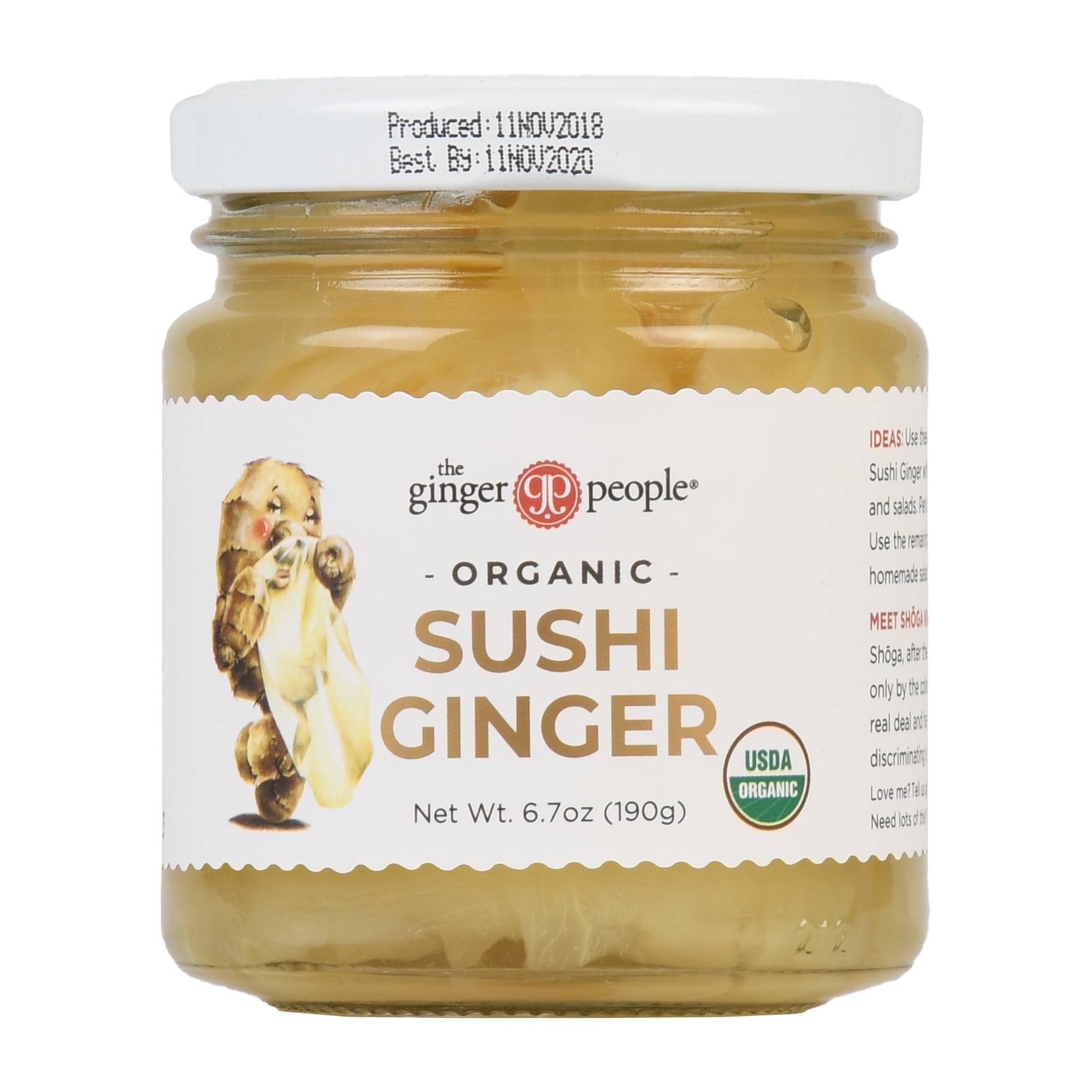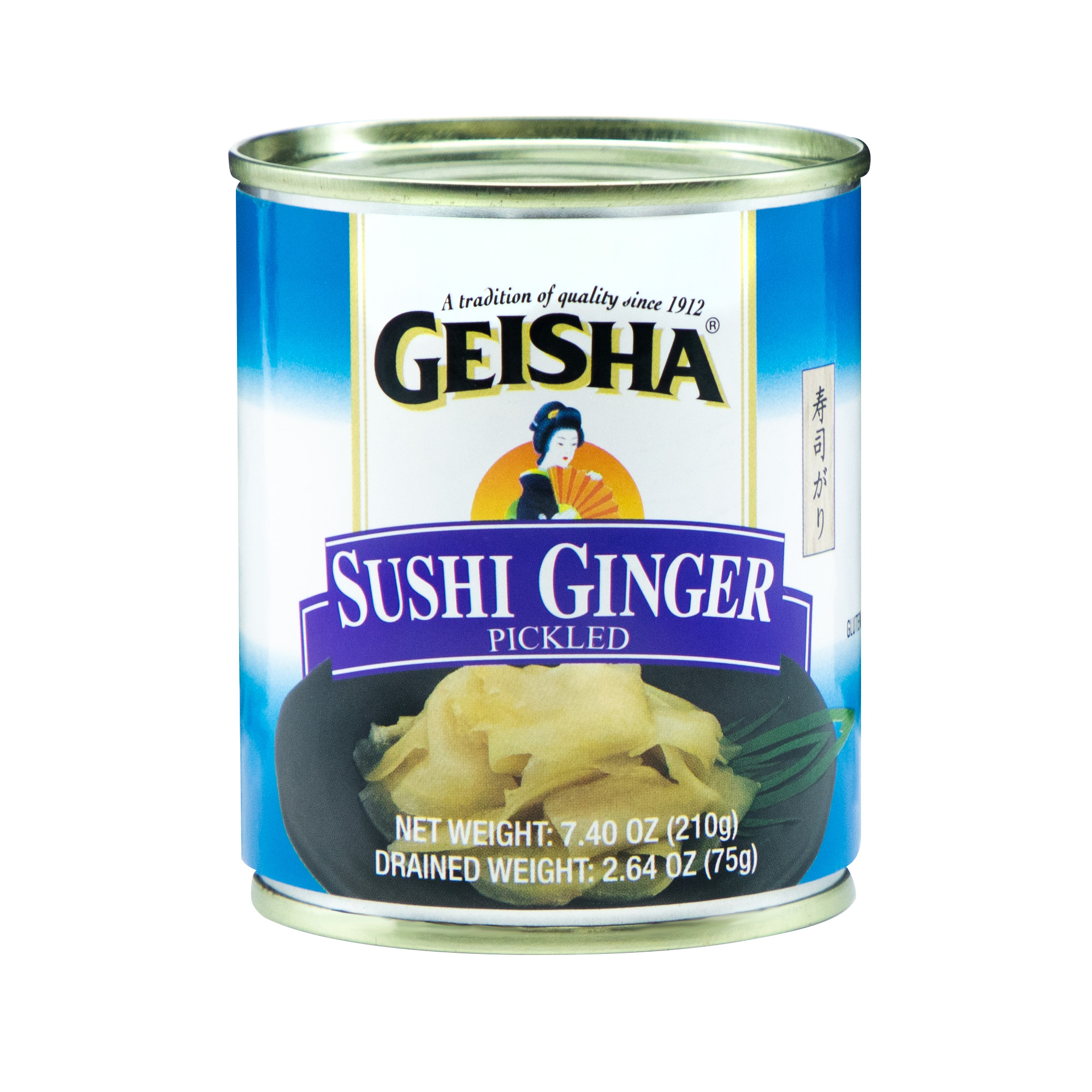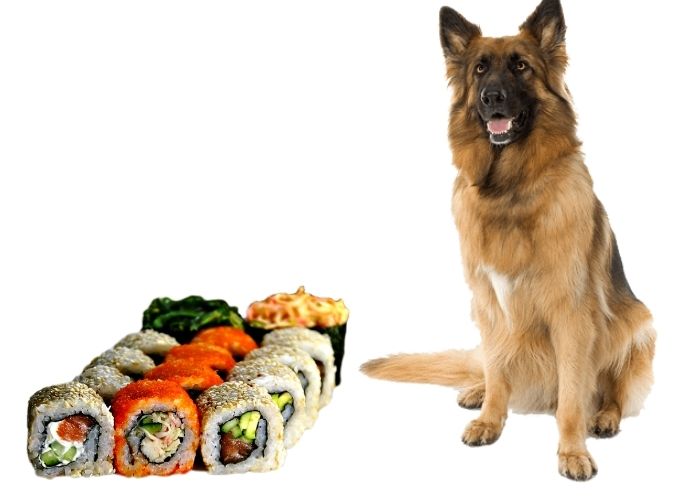Can Dogs Eat Sushi? Is Sushi Ingredients Safe for Your Pup?

Expert Explains Why You Should Never Eat Sushi And Ginger At The Same Time
Here are several popular sushi ingredients that could put your pet at risk for health problems: 1. Avocado: While avocado flesh is safe for dogs to eat in small quantities, the skin of an avocado contains the bacteria persin and, therefore, poses a toxicity risk to your pooch. Avocado skin is not toxic to humans; however, it has a very.

Why Restaurants Pair Sushi With Ginger And The Proper Way To Eat It
When it is or isn't an Emergency. Yes, dogs can eat ginger as long as it's in small amounts. Ginger is available in many forms, including raw ginger, ground ginger, ginger powder, crystallized ginger, the whole ginger root, and ginger from sushi. Some of these will be safe for dogs, while others won't necessarily be safe due to the use of.

The Ginger People Organic Pickled Sushi Ginger, 6.7 Oz
Can Dogs Eat Sushi Ginger? When it comes to the topic of dogs and sushi ginger, there is much debate and confusion. Many dog owners wonder if it is safe to feed their furry friends this popular sushi condiment. Sushi ginger, also known as gari, is made from sweet, thinly sliced young ginger that has been marinated in a solution of sugar and.

Can Dogs Eat Sushi? Read This, Before You Feed Them Barking Cuties
Yes - with caution. Here's the long and short of it: If your dog has developed a taste for ginger, don't stress. But in general, when it comes to feeding dogs human foods, moderation is best. "Human food is not harmful to dogs. However, it is more likely to cause problems than a regular dog food diet," Dr. Myers says.

Can Dogs Eat Sushi? Benefits vs Risks
A small amount of fresh sushi will be harmless for your dog. Just be sure to avoid feeding any recipes that contain spices or other questionable ingredients. And never provide oldish leftover sushi to a precious pet. It's a recipe for doggie disaster. Any type of raw seafood can quickly spoil and sicken your animal!

Can Dogs Eat Sushi Ginger? Everything You Need to Know
Sushi is a popular Japanese dish that people all over the world enjoy. It consists of vinegared rice, fish, and other ingredients like vegetables or egg. One of the most common condiments used in sushi is pickled ginger, which has a spicy yet refreshing taste. But what about dogs? Can they eat sushi ginger? The Short Answer

Can Dogs Eat Cherries? 3 Amazing Health Benefits Revealed
So, can dogs actually have ginger? Your dogs can, in fact, eat ginger, provided you're giving him small amounts and his stomach can handle it. "Yes, they can eat ginger, but some dogs can be very sensitive to any changes in their diet," Dr. Bustamante told The Dodo. "So I would be very careful.". While ginger might be a little.

Can Dogs Eat Sushi? Is Sushi Ingredients Safe for Your Pup?
Pickled Ginger. Ginger is not dangerous in the slightest. The opposite is what happens. Ginger contains antioxidants that help your dog in many ways: blood flow, anti-inflammation, and more.. If you take something from our "can dogs eat sushi?" explanation, make it the fact that sushi is not necessarily bad in moderation (and as long as.

Can Dogs Eat Sushi? (Safety, Precautions & Health Benefits)
Potential Advantages of Ginger for Dogs. Anti-inflammatory: Ginger has natural anti-inflammatory properties, potentially assisting dogs with conditions like arthritis or joint pain.; Digestive Aid: For dogs with occasional stomach upset, ginger can act as a remedy, helping to alleviate nausea and gas.; Antioxidant Rich: The compounds in ginger can help neutralise harmful free radicals.

Can Dogs Eat Okra A Complete Guide To Okra For Dogs Can dogs eat
Can Dogs Eat Ginger from Sushi? When it comes to sushi, ginger is typically served pickled and thinly sliced. While a small amount of pickled ginger may not necessarily harm your dog, it's important to consider the potential risks involved. Sushi ginger is often soaked in vinegar and sugar, which may not be the best option for dogs.

candogseatpepperoni Simply For Dogs
Can dogs eat sushi ginger? The short answer is, it's complicated. While fresh ginger root offers numerous health benefits for dogs, including aiding digestion and helping with motion sickness, sushi ginger — which is actually pickled ginger — comes with added sugars and vinegar that might not be the best for your dog's diet.

Can Dogs Eat Sushi? All You Need To Know BiographyVibe
Additionally, ginger contains natural compounds that can trigger allergies in dogs. Real experience has shown that some dogs may enjoy the taste of sushi ginger, but that doesn't mean it is safe for them. When dogs have consumed ginger, they may experience digestive issues, such as nausea, loss of appetite, or diarrhea. Some dogs may even.

Can Dogs Eat Sushi? PetDT
Rice is perfectly fine for dogs to eat and is commonly found in dog food. While not toxic, your dog's intake of sugar and salt should be limited, but sushi is unlikely to contain a significant amount of either of these ingredients. Soy sauce is sometimes present, and it includes a lot of salt. Some sushi may also contain garlic, which is.

SUSHI GINGER PICKLED Geisha Brand
Can Dogs Eat Ginger from Sushi? - Frequently Asked Questions 1. What is ginger? Ginger is a flowering plant that is commonly used as a spice and natural remedy in many cuisines around the world. It has a strong flavor and aroma and is often added to foods like sushi for its unique taste. 2. Is ginger safe for dogs to eat?

Can Dogs Eat Sushi? Thank Your Vet
Can Dogs Eat Sushi Ginger? No, dogs cannot eat sushi ginger because it contains potentially toxic ingredients like sugar and salt. Sushi ginger is a type of Japanese pickle, or tsukemono, made by brining thin slices of young ginger in vinegar, sugar, and salt. As a result, the snack contains high salt and sugar, which is unhealthy for dogs.

Can dogs eat sushi?
As with any human food, ginger should only be given to dogs in moderation. The rule of thumb is a serving should never be more than one-sixteenth of a teaspoon per pound of body weight. To be on.